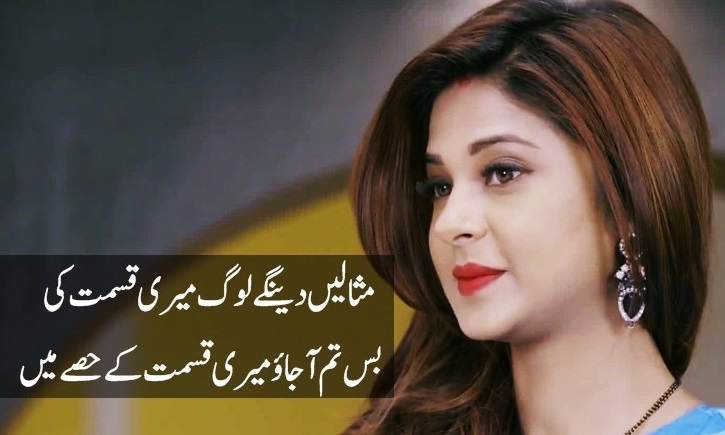

No one must challenge a ‘chosen Caliph,’ he wrote, and then, expectedly, quoted another alleged hadith in which the Prophet allegedly ordered that in situations where two persons claimed the title and obtained allegiances (bai’at) from different supporters, ‘the person to make the second claim must be executed.’ Jan published the second part of a long essay against contemporary democracies, arguing in favor of a system where only certain ‘worthy’ individuals should have the right to choose the ruler of a Muslim state, and that once a Caliph had been chosen in that manner it was incumbent on all Muslims to obey him. Then, only a day before the Express-Tribune published its editorial, Mr. If that was right in 1988, he asked his co-religionists, why should it be wrong and un-Islamic now?
#Farii gillani urdu poem full#
I cannot reproduce here his long and a bit convoluted argument-it should be read in Urdu to get its full flavour-but this is how he closed: ‘According to all the principles of Political Science the Daulat-e Islamiya is a state it is also a state according to those who champion the cause of a Muslim Social/Political Contract ( musalmanon ka nazm-e ijtima’i).” He then proceeded to argue that in 1988 the revolutionaries in Iran were fully justified in declaring Iranian Communists and Liberals to be mulhid (heretics) and munafiq (dissembling enemies) and therefore fully deserving execution as enemies of the Revolutionary Islamic State. Jan shifted from Doomsday forecasts to Political History and questioned the sincerity of any Muslim who accused Amirul Mominin Abu Bakr Baghdadi and his IS crowd of wanton killing.

According to one, the Prophet allegedly prophesied that before the end of the world there would be a decisive battle between Muslims and Christians near Aleppo, and that, according to the second alleged hadith, the best among the Muslims at that time would be those who would do the hijrat to Syria-in other words those who would leave their lands to join the Mehdi’s army.Ī few days later, on December 5, 2014, Mr.

In it he ever so blithely argued that Syria was the place where lines had been clearly drawn between Islam and non-Islam, and where would likely be, in his view, ‘the headquarters of Imam Mehdi and the capital of his Caliphate.’ He then expanded his argument by quoting two alleged hadith. Consider his column of November 17, 2014-titled ‘ Taqsim Wazih Ho Rahi Hai’ (‘Lines are now clearly drawn’). I, of course, mean the one and only Orya Maqbul Jan, the self-proclaimed expert on International Finance, Muslim Political History, and the Doomsday. But I wonder why the editors of the Express-Tribune had go to the trouble of finding just one example so far away from their comfortable offices when they could have easily found an equally redoubtable supporter of IS in their own sister Urdu journal, the Daily Express. The naming of names is commendable even if it amounts to only one institution, for the practice is rather rare in Pakistani editorials and columns. One is of Abdul Aziz, the chief cleric of the infamous Lal Masjid in Islamabad-the paper charges: ‘ is happy to declare that he holds the group in high regard’-and the other is the case of some ‘female students of Jamia Hafsa who have prepared and circulated a video extolling the IS.’ Government ministers have gone on-the-record to say that there is no IS presence, but there are reports of supportive wall-chalking and the circulation of literature that supports the IS from several parts of the country.’ It then goes on to allow that ‘there are parts of the country where the extremist mindset has been fostered and grown over many years, and the ideology of the IS may find fertile ground to root itself in,’ and offers two examples. An editorial- ‘Into the Open’-in the Express-Tribune of December 16, 2014, begins: ‘There has been much speculation, frequently alarmist or simply ill-informed, as to the extent or otherwise that the Islamic State (IS) has a presence in Pakistan.


 0 kommentar(er)
0 kommentar(er)
